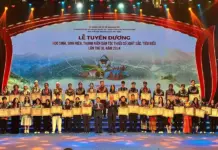The National History Museum is proud to present the “Vietnam National Treasures” exhibition, a captivating event that pays homage to the rich cultural heritage of Vietnam. This exclusive showcase features a curated selection of 18 exquisite treasures, exhibited within the Museum’s prestigious main building. With the innovative utilization of cutting-edge 3D lighting technology, visitors will be treated to an immersive and memorable experience unlike any other. Join us in celebrating the value and importance of Vietnam’s national treasures at this remarkable exhibition.
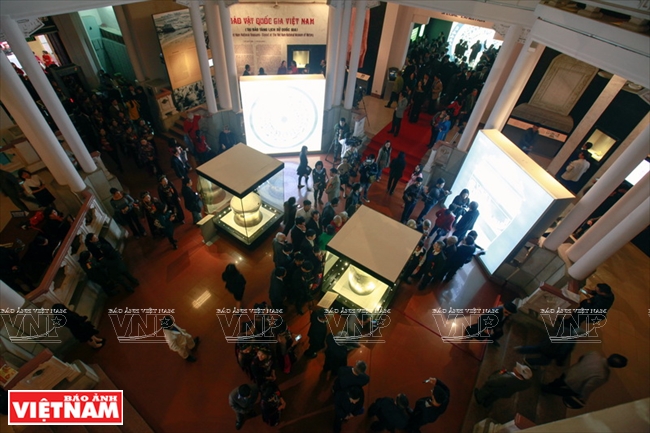
The National History Museum is delighted to showcase 18 esteemed national treasures in its upcoming exhibition. These treasures hold great historical and cultural importance, spanning various periods such as the Dong Son era, feudal monarchies, dynasties, and the fight for national liberation. This will be the first time these treasures are being presented to the public.
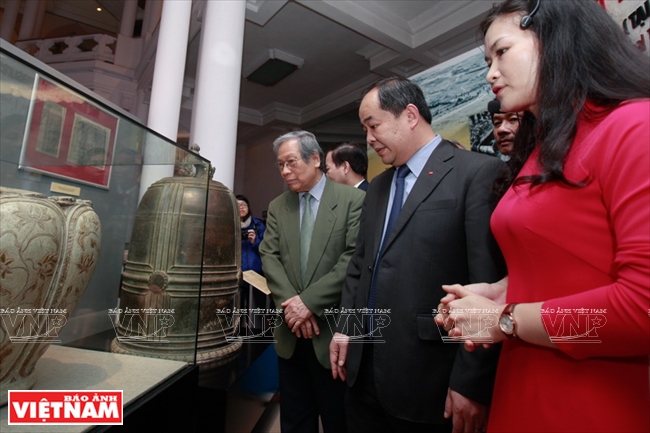
Deputy Minister of Culture, Sport, and Tourism, Le Khanh Hai, along with a group of distinguished delegates, had the honor of visiting the exhibition space dedicated to our nation’s invaluable treasures.
One of the captivating treasures on display at our establishment is the “Mon ha sanh an” (central administrative office seal), which never fails to captivate our visitors.
Foreign visitors can immortalize their experience with the renowned “Sac menh chi bao” gold seal.
The exhibition offers visitors a unique opportunity to explore and appreciate a wide range of priceless antiques that represent over 2,000 years of Vietnam’s fascinating history. From the ancient Dong Son era to the illustrious Dai Viet civilization, as well as the various feudal dynasties and the Democratic Republic of Vietnam, these invaluable treasures provide a captivating insight into Vietnam’s rich cultural heritage.
The exhibition space offers visitors a comprehensive experience, with captivating historical anecdotes and cultural insights displayed on information boards. Additionally, enriching short video clips further enhance visitors’ understanding and appreciation of these valuable treasures.
The Organising Committee has announced that this exclusive exhibition will remain open until May 31, 2017.
The Hoang Ha bronze drum, an exquisite example from the Dong Son period, was unearthed in Hoang Ha village, Phu Xuyen district, Hanoi. This remarkable artifact showcases intricate designs that depict the prosperous material and spiritual aspects of life during the Dong Son era.
A Dao Thinh bronze jar, dating back 2,000-2,500 years from the Dong Son period, holds the esteemed title of a national treasure. With its exceptional and intricately adorned motifs, it stands out as a truly remarkable artifact.
The artwork displays an ancient jar adorned with intricately crafted statues depicting couples engaged in acts of love. This particular artistic style is known as Dong Son art and is characterized by its symmetrical design. The exaggerated portrayal of the male sexual organ in these statues serves as a symbol of fertility and highlights the prevailing social conflicts of that era.
A Closer Look at the Engraved Designs on the Dao Thinh Bronze Jar
The “Sac menh chi bao” gold seal, weighing 8.3kg and cast in 1827, is of great importance in the collection of gold treasures from the Nguyen dynasty.
Ancient Standing Lamp
This unique piece of art is an ancient standing lamp that is shaped like a kneeling person. It beautifully showcases the cultural exchange between the Dong Son and Han civilizations. The intricate design and attention to detail make it a truly remarkable artifact.
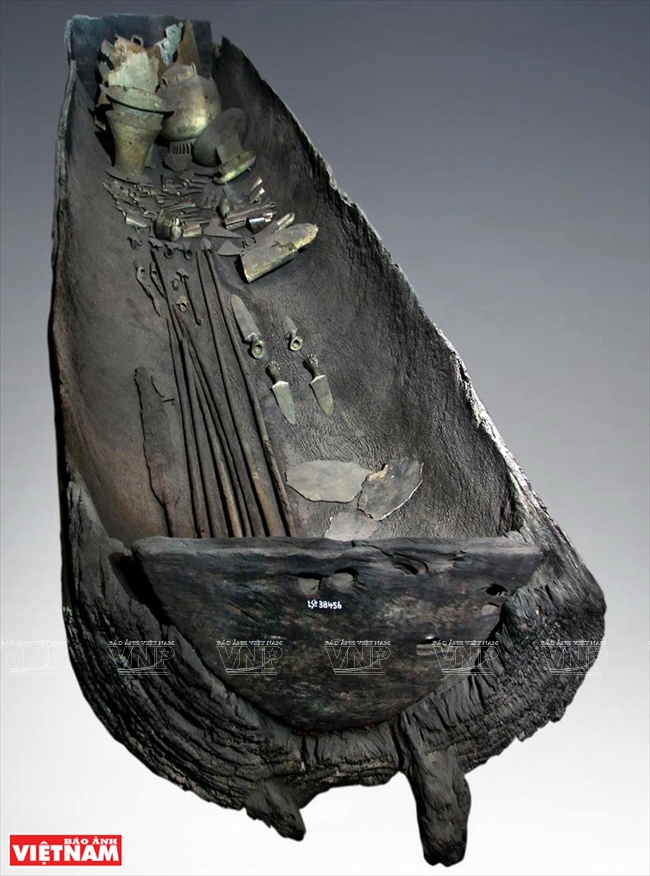
The Viet Khe boat tumulus, unearthed in Vietnam and dating back to 2,000-2,500 years ago, showcases a wealth of unique and precious artifacts. This remarkable discovery provides a valuable glimpse into the lifestyle of ancient civilizations during that era.
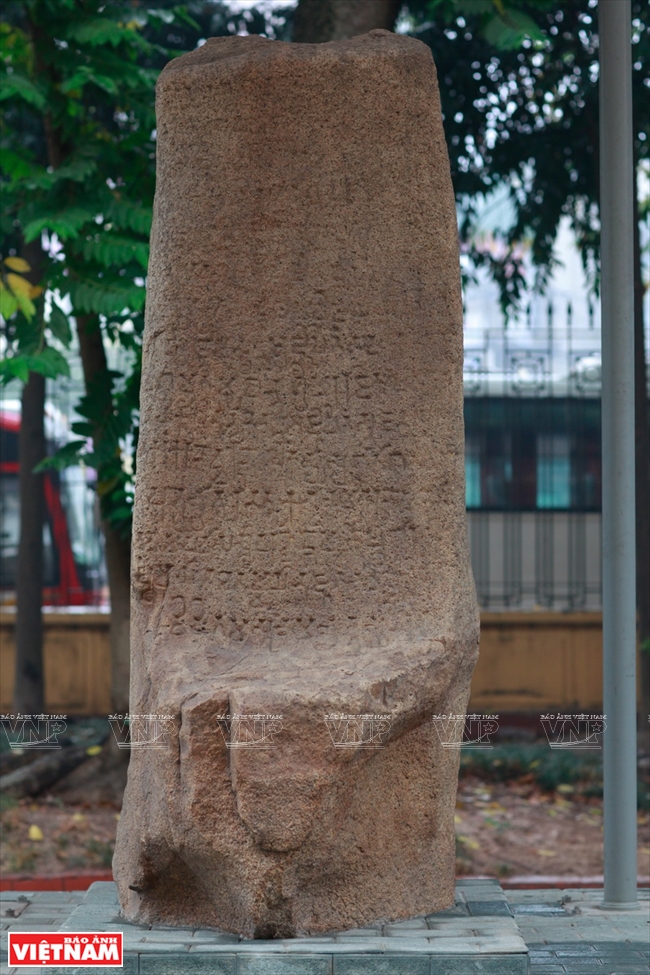
The Vo Canh stela is considered as the oldest stela in Southeast Asia, holding significant historical information about the pre-Nam Cham kingdom.
The Van Ban Pagoda Bell is a significant relic from the 13th to 14th centuries during the Tran dynasty, making it the oldest and largest bell of the Dai Viet civilization. This ancient artifact provides valuable insights into the rich history and cultural traditions of Vietnamese Buddhism.
The “Mon ha sanh an” bronze seal from the Tran dynasty held significant administrative value during its time. This seal symbolized the central administration of the Tran dynasty.
Dai Viet Gold Seal from 1709
A national treasure of immense historical significance, this gold seal was crafted in 1709 during the reign of Lord Nguyen Phuc Chu. It symbolizes the pivotal moment of succession to the throne during that era. With intricate craftsmanship and artistic design, this seal stands as a testament to the rich cultural heritage of Dai Viet.
An exquisite vase painted with swans from the early Le dynasty was discovered on a sunken ship in Hoi An. The intricate designs on the vase represent people’s desires for a prosperous and flourishing life.
A remarkable artifact from the Tay Son period, the Canh Thinh bronze drum is an exceptional example of Vietnamese bronze drums. This exquisite exhibit features intricate decorative designs, symbolizing the ideals of peace, prosperity, and national security.
A Closer Look at the Ancient Designs Engraved on the Canh Thinh Bronze Drum
The “Nhat ky trong tu” (Prison Diary) poem collection, alongside its original manuscript, is showcased through compelling photographs. This exhibition provides unique perspectives into revolutionary activities and carries great historical importance.
“The ‘Duong Kach Menh’ political theoretical document, authored by Nguyen Ai Quoc, is widely regarded as the foundational document of the Party’s ideology. This seminal work is credited with laying the groundwork for the Vietnamese revolution.”


